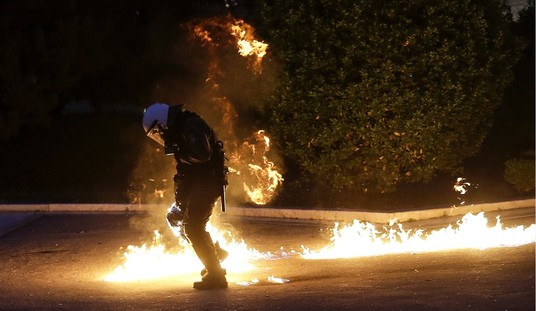On December 13, the National Transportation Safety Board announced that they would be recommending a complete and total ban on the use of cell phones and text-messaging devices while driving. Previously, the NTSB had recommended such bans only for novice drivers, school bus drivers, and some commercial truckers.
This is a remarkably heavy-handed response. Every American is concerned about automobile safety, but the response to the problem should be commensurate. There are alternatives involving the use of technology and information that exist. An absolute ban on all cell phone use isn’t just a wrong-headed intrusion on our freedom — as it implies that adults can’t be careful to make responsible decisions regarding cell phone use and driving — it will be costly to many Americans and dangerous for some.
The cell phone is perhaps one of the most remarkable innovations of the 20th century, its very ubiquity a sign of its utility. Restricting access to cell phones illustrates the far-reaching ability of the nanny state to dictate to ordinary Americans how they will live out their lives without regard to their input or concerns.
While the NTSB categorizes cell phone use as an example of “distracted driving,” it only seeks to ban one aspect of it — using cell phones. Complicated navigation and infotainment systems that often require DVDs and separate manuals to operate are not included. Fast food and Starbucks trips aren’t affected. Drivers learning to use manual transmissions or those who apply make-up while driving aren’t impacted. Only users of cell phones.
Thanks to the decisions of the NTSB, state regulators and even insurance companies will have ammunition to insist on new riders that restrict coverage for consumers who either have cell phones or who use them while driving. Like policies that used to restrict “radar detector” owners by either allowing insurance companies to drop owners with detectors altogether or raising their rates by as much as $250 a year, the NTSB rule will empower insurance companies and regulators to engage in a financial assault on families.
Many states and localities will use the NTSB action as a pretext for adopting new and higher fines and more aggressive enforcement of existing cell phone bans. For instance: while the state fine for first time illegal cell phone use in California is $50, after related court costs are included the actual cost to the driver is nearly $250. Thanks to the NTSB, drivers should expect more of this all over the country.
In addition to being costly for American drivers, this measure will prove dangerous. If fully enforced, people who need cell phone access for their own safety could be limited. Remember: not only does the NTSB recommend against holding cell phones and talking in the car, they seek to ban any use in the car with Bluetooth built-in or aftermarket. In fact, Department of Transportation’s Secretary Ray LaHood has said: “There’s a lot of technology out there that can disable phones and we’re considering that.”
This means that instead of you having the ability to gauge when and whether it is safe or prudent to use your cell phone, the ban will decide for you. While many times it is safe to pull over and stop to make a cell phone call, it is precisely during the period when that isn’t true that you need your cell phone more than ever.
Additionally, law enforcement will be given more discretion and pretexts for pulling over drivers. Since singing in the car, talking out loud, or even discussions with a child in the back seat can easily be mistaken for cell phone use, law enforcement will have carte blanche to pull practically any vehicle over at any time. Existing protections affecting the legal standards for law enforcement interference with drivers as a result would be significantly eroded.
Even if you go to court to fight, the standard of proof in such cases limit the likelihood of prevailing (it’s your word versus the officers) and even a victory is pyrrhic, since the taxpayers would not be reimbursed for time they have to take off from work.
Make no mistake; this isn’t a one-off by the NTSB. The Feds are coming: the Department of Transportation and members of Congress are aggressively pushing this measure.
When the NTSB issued its release, DOT Secretary Ray LaHood — who strongly favors a federal ban on all cell phone use by drivers — said: “The National Transportation Safety Board can speak with a loud voice, and we’re very happy to have them on board.”
And Senators Chuck Schumer and John Rockefeller aren’t sitting idly. If states and local regulators aren’t acting fast enough, they’re willing to use the power of the federal government to push this through. They’ve already introduced bills in Congress to withhold funds or provide additional funds for state highway funding to ensure smartphone restrictions go nationwide.
The ALERT Drivers Act, sponsored by Chuck Schumer, would instruct the secretary of Transportation to withhold 25% of a state’s federal highway funding if the state does not enact a texting ban. The ban would need to include writing, reading, or sending using a hand-held mobile telephone, except in an emergency situation. The law would also have to include minimum penalties. The bill defines mobile telephone to include other portable electronic devices. This law is modeled after the drinking age law, requiring states to impose a drinking age of 21.
The Distracted Driving Prevention Act of 2009, sponsored by Rockefeller, provides grants to states that enact a distracted driving law. To qualify for the grant, the state law must include that distracted driving be a primary offense. The ban would need to include not only texting, but also holding a cell phone or other personal wireless communication device. The law would also have to include a complete ban of any mobile device, including hands free, for drivers under the age of 18.
Let’s be clear. Distracted driving can be unsafe, but a nanny state on steroids kills liberty. Instead of solutions that are voluntary and rely on education and technology, Washington has responded with a knee-jerk ban on all cell phone use in the automobile. This is not the right answer — a ban is a solution whose time hasn’t come. Adults can and should decide what circumstances warrant the prudent use of a cell phone while driving.
This approach is particularly inappropriate in light of the reality that the typical driver faces any number of distractions when they get behind the wheel. Pretending it will be safer merely because we can’t use our phones anymore is absurd.









Join the conversation as a VIP Member